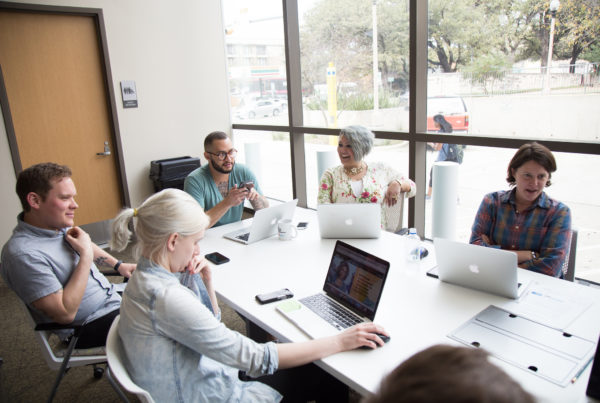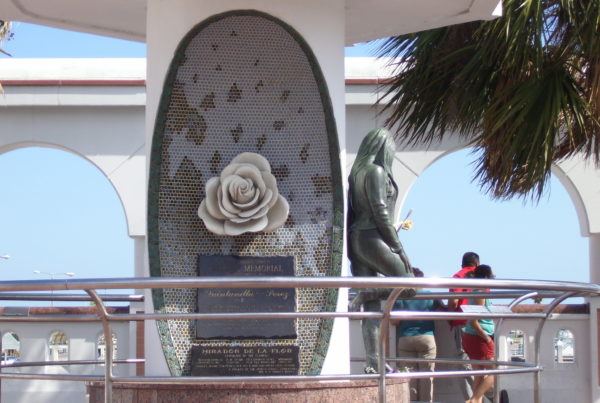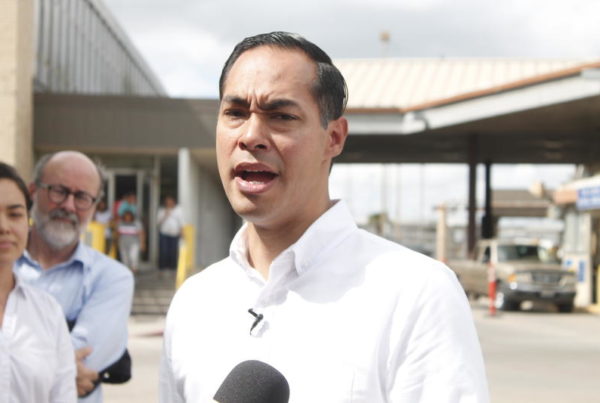In 2014 she was the first Latina to create, produce, write and star in her own network sitcom. And in 2017 she debuted her Netflix special “Lower Classy.” Now San Juan, Texas native Cristela Alonzo can add author to her list of accomplishments.
In her recently released book, “Music To My Years: A Mixtape Memoir of Growing Up and Standing Up,” Alonzo writes about the songs that formed and shaped her years.
“It was a good day”
After listening to Ice Cube’s 1992 hit “It Was A Good Day,” a young Alonzo’s imagination filled with dreams of her own good day. These fantasies ranged from having her own room to a luxury of eating three meals a day.
When we talked recently, my fellow Rio Grande Valley native said if there’s one thing that could help guide anyone through a book about her life and experiences, it’s music.
“I didn’t want people looking at me and just thinking that it was going to be a Latino book,” she says. “So I wanted to come up with a way that could connect everybody. And I started thinking about it and you know, everybody has a song. Songs for some reason are so moving that they can always take you to a place in your life. They’re all little bookmarks in your head and I started thinking that’s the book.”
Throughout her memoir, in place of numerals, Alonzo uses songs to signify the important chapters in her life – building a track list instead of a table of contents.
“The book is remembering these songs that I still listen to, that take me back to that time,” she says. “And how much better could I do than actually describe these songs and how they feel to me. And that allows me to talk about my life.”
Growing up below the poverty line, Alonzo often found herself alone after school, waiting for her mother and older siblings to get off work.
“My friends were TV shows and movies and music that I listened to,” she says. “I had to forge these friendships – I had to create these friendships with whatever I had available.”
“Lose yourself”
Alonzo likes to tell people that based on the way she grew up, she’s not supposed to live the life she’s currently living, or have the opportunities she does. But she goes on to clarify, “I don’t believe that. But that’s how people talk to me.”
Eminem’s “Lose Yourself,” struck a particular chord with Alonzo.
“You know for me, I’ve always treated everything like it’s the only chance I’ll have to do it,” she says.
She explains that when you grow up in an environment with limited opportunity, sometimes the people who love you the most try to take you down a peg – in order to protect you.
“It’s so weird how they protect you by hurting your feelings. So for me, “Lose Yourself,” when I heard it… It really kind of encapsulated everything I felt,” Alonzo says.
“Dreaming of you”
Alonzo felt a moment of joy when MAC Cosmetics partnered with the Quintanilla family to release a special Selena makeup collection.
“That makeup line sold out immediately,” she says. “It flew off the shelves and that was because she is the legacy of so many Latinas, especially in Texas.”
Selena’s crossover song “Dreaming of You” is the track title of the book’s fourth chapter. For many young Tejanas in the 90s, Selena proved anything was possible. It’s a power that a generation grew up with, and that extends beyond it.
“She is what we are capable of being,” Alonzo says of the Mexican-American icon. “That is what happens when people are allowed to be themselves. That is what happens when a Latina gets the power to be herself and thrive. And that’s how she influences an entire culture.”
“Thank you for being a friend”
When it comes to pop culture, Alonzo proclaims her super-fandom to a sitcom following the shenanigans of three widowers and a divorcée – Blanche, Rose, Sophia and Dorothy. The Golden Girls’ theme song, “Thank You For Being A Friend” gives chapter three it’s name. It’s a song Alonzo quickly memorized at a young age.
The idea of -– as Alonzo puts it -– a little brown girl living on the South Texas border, part of a mixed-status family, identifying with four older white women in Florida might seem odd.
“But to me, Dorothy Zbornak and Sophia Petrillo were my mom and I,” she says. “My mom had grown up in this little ranch–in this little rancho in Mexico in the middle of nowhere. No electricity, no running water, no anything. And she would tell stories like Sophia did. And you could never beat my mom and her stories. If you thought you struggled, she would give you a story a hundred times worse, where she struggled worse. So you could never win.”
“Shape of my heart”
The close relationship between Alonzo and her mom mirrors those found in many in minority communities. So when she got a phone call from her brother, while she was living in Los Angeles, saying her mom was on her deathbed, Alonzo didn’t hesitate to fly home to say goodbye.
“When I went there and saw her, she got better,” Alonzo says. “So she told me that she got better because I was there. Like no pressure, but hell of a lot of pressure. Like no big deal but you saved my life. You know so she’s like ‘hey don’t leave.’ And I’m like ‘oh so if I leave, I kill you? Got it. Like no big deal.’ So I had to call my roommates in L.A. and I told them to get rid of everything I owned.”
Alonzo had effectively taken on the role of caretaker for her mother.
“It was a responsibility that I chose because I knew if I didn’t, if I hadn’t accepted it, I would regret it for the rest of my life,” she says.
As Alonzo weighed the options for songs she wanted to write about in her book, she knew that this chapter about her mom would be titled “Shape of My Heart.”
“First thing I thought was, ‘Really? A Backstreet Boys’ song? This makes no sense,’” she says. “But the truth is that’s the song. And the truth – that’s where you get to feel emotions right? So for me the Backstreet Boys’ “Shape Of My Heart” was one of, if not the most traumatic parts of my life.”
It was tough on Alonzo to be her mother’s mother – to put family and duty over her own hopes and dreams. But family is family, she decided.
“My mom and I, we had a special bond,” she says. “It reminds me of this strange specific relationship that so many people that I grew up with have. The least I could do. Is give her back the love and attention that she gave me as a child.”
Alonzo starts her nationwide stand-up comedy tour, “My Affordable Care Act,” Tuesday, to coincide with the release of her book. A Spanish-language version of the book is set to come out December 10. You can listen to Alonzo’s curated track list on Spotify..













